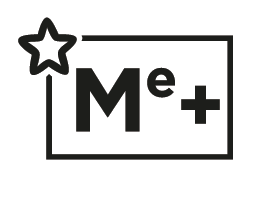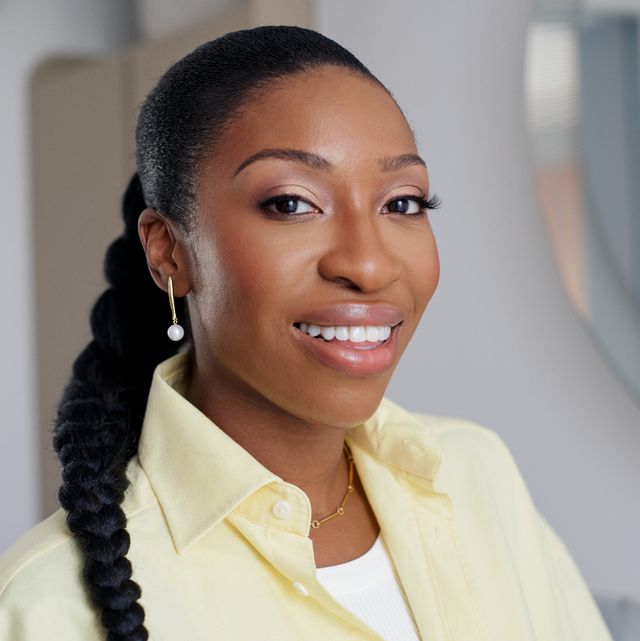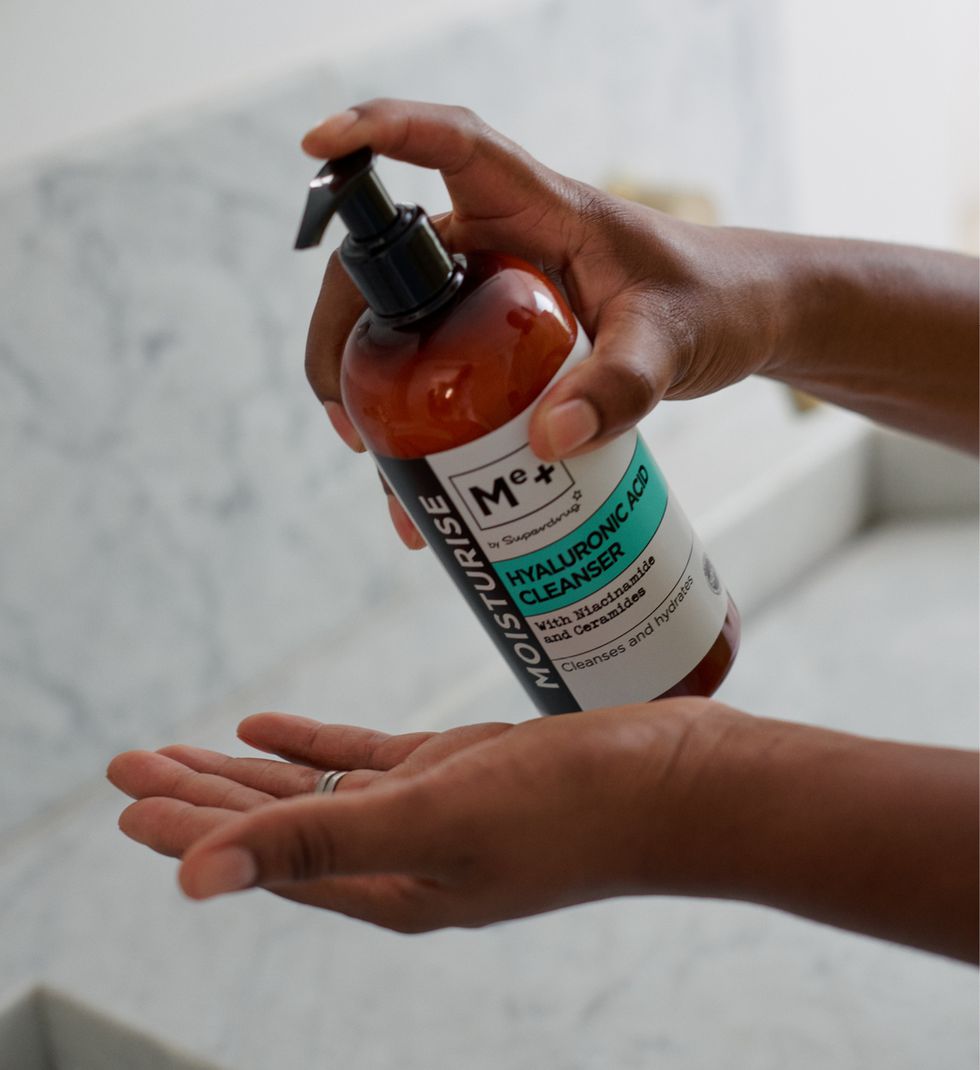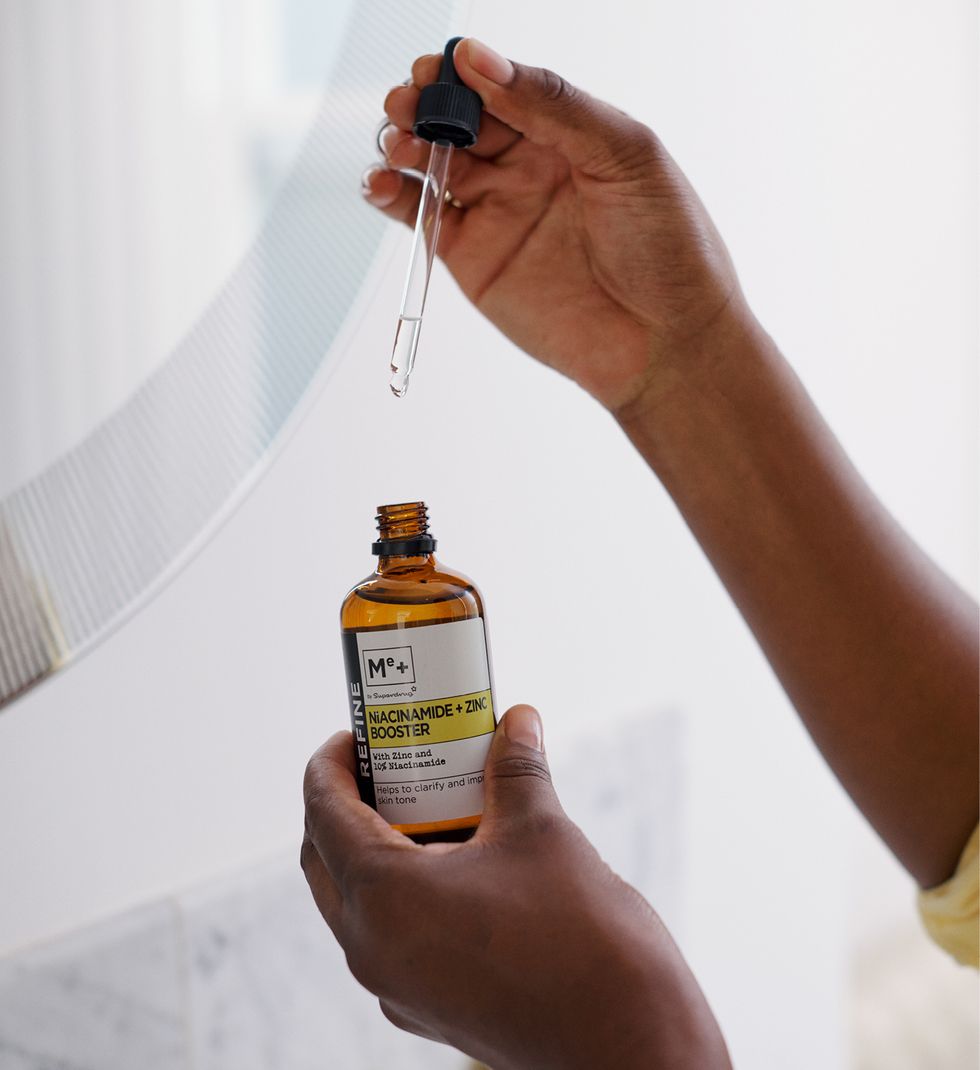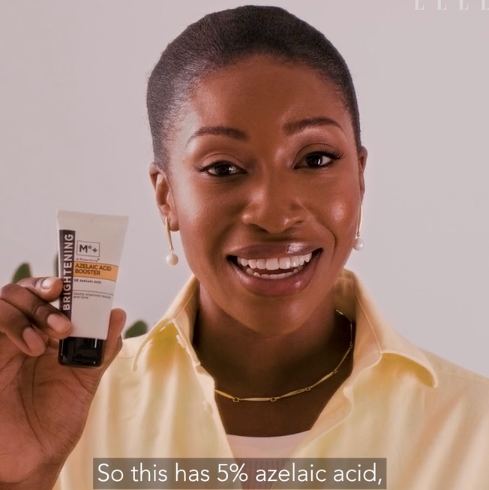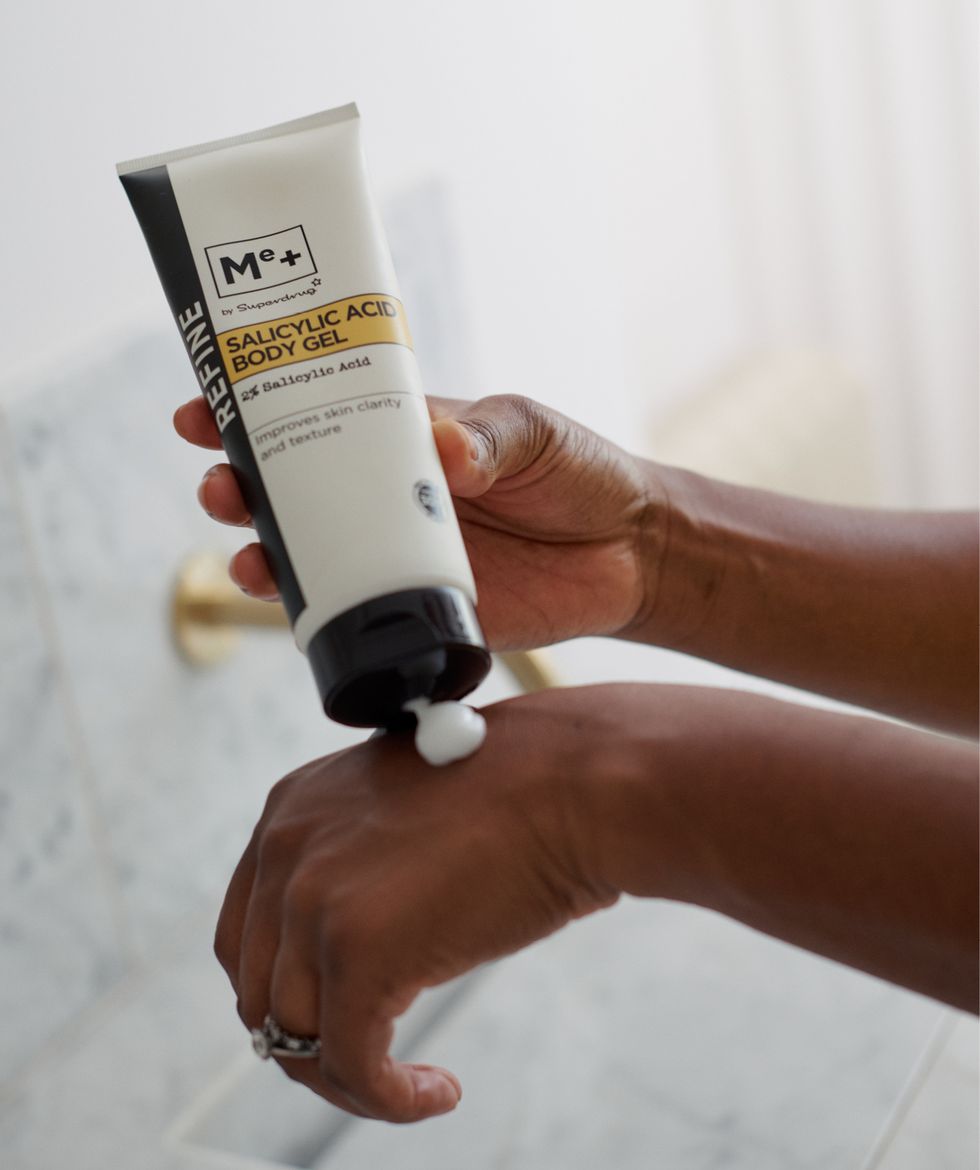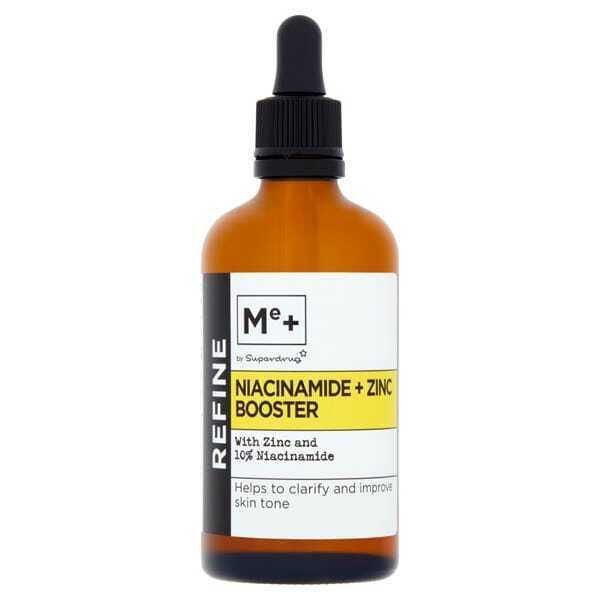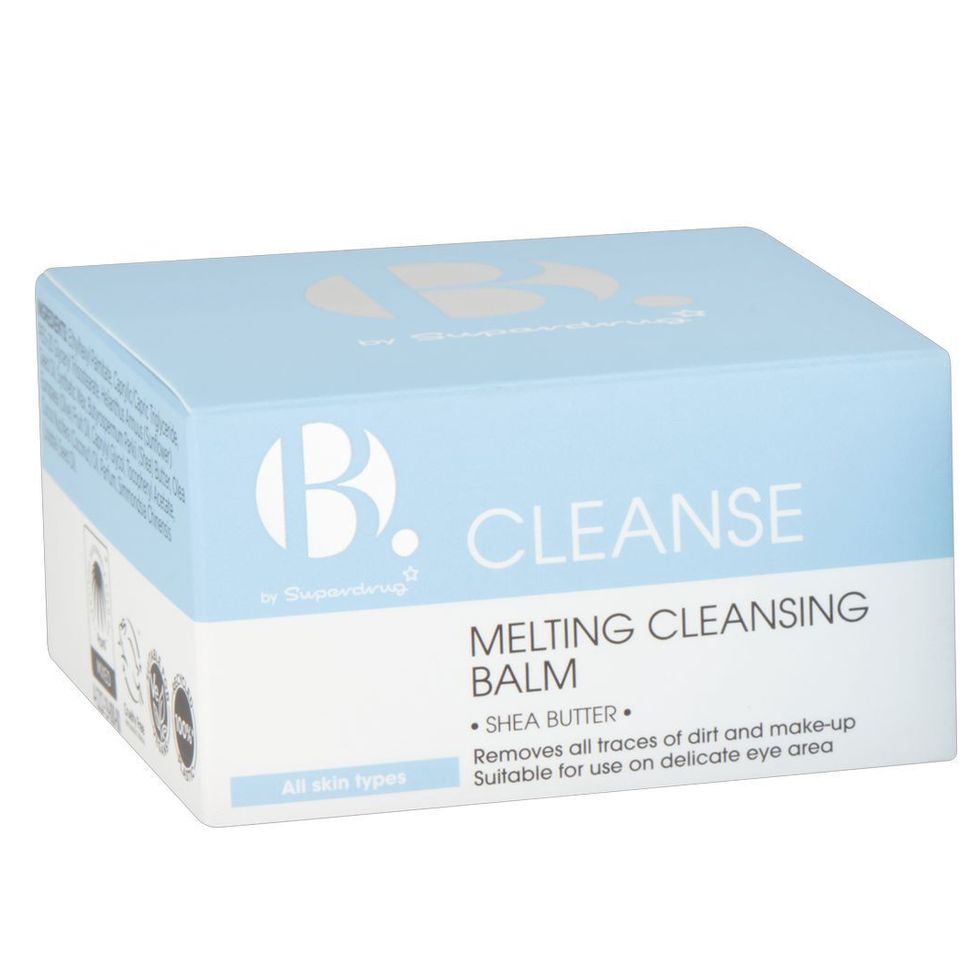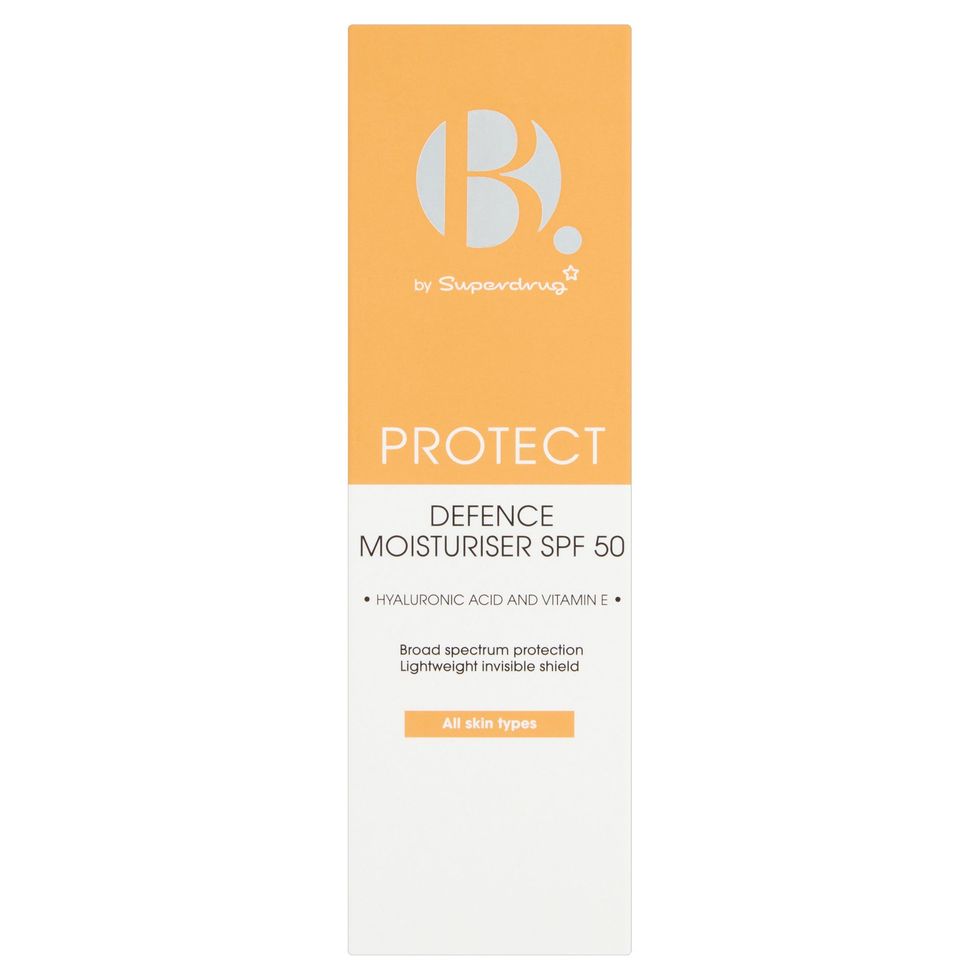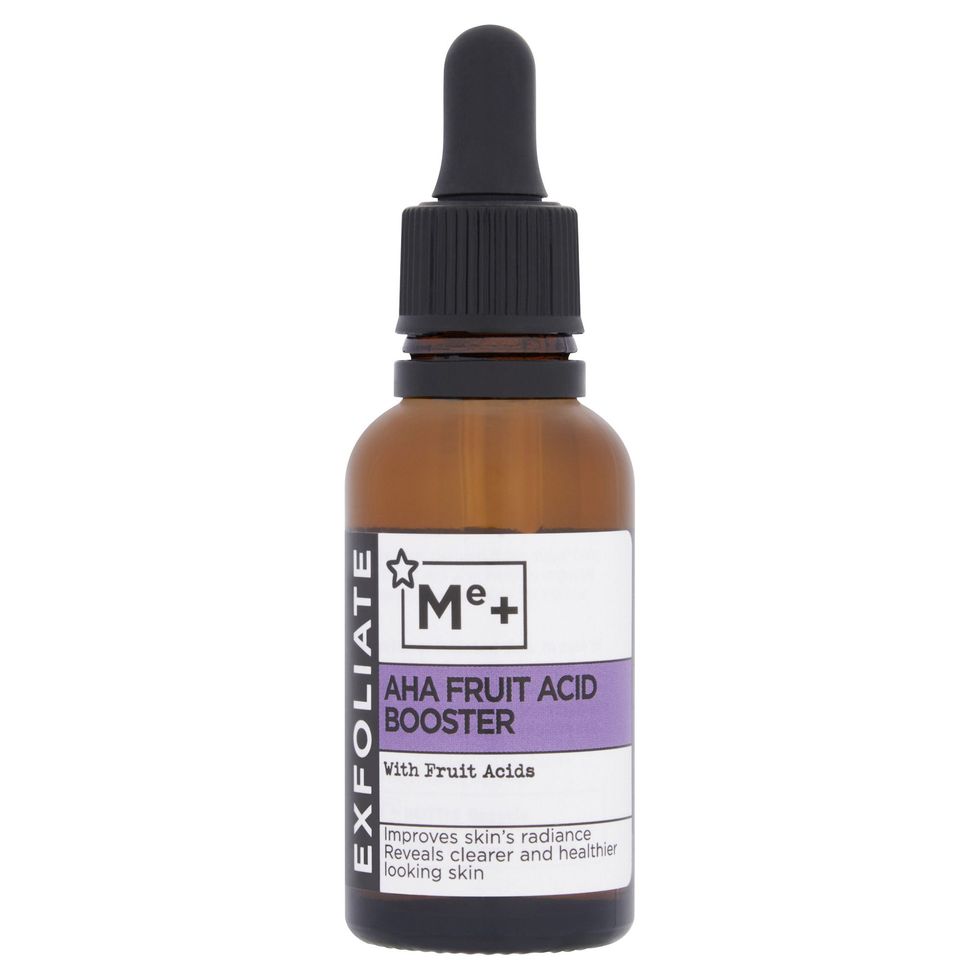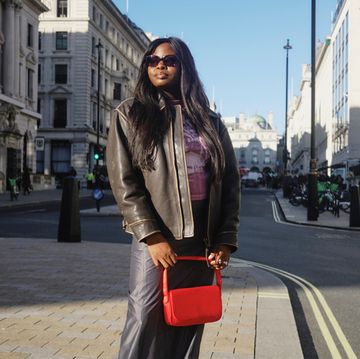The skincare aisle can be tricky to navigate, what with buzzy ingredients cropping up every week and new (and often times, dubious) TikTok fads making its way onto our For You page daily.
Which is why we've gone straight to a skincare expert to help shed light on the key aspects of building an easy skincare routine that works alongside solutions to some of the most common skincare issues.
Medical consultant Dr. Ifeoma Ejikeme is highly-regarded among the beauty editor circle for her no-nonsense advice and in-depth knowledge of ingredients. One thing she wants us to know is that good skincare doesn't have to cost a fortune – products with effective percentages of active ingredients can be found on the high street (such as the Me+ and B. ranges from Superdrug). Here's her top advice on how to harness those ingredients to achieve a clearer, brighter complexion.
1.Why Is Cleansing So Important?
Washing your face might feel like a chore (especially after those nights OUT out), but next to sunscreen, it’s the most important step in your skincare regime – even if you don’t usually wear make-up.
‘Our skin naturally has excess oil and dead skin cells. Plus, most of the world has pollution,’ says Dr. Ejikeme. The build-up of all these things, plus your make-up, can cause oxidative damage and speed up collagen breakdown which leads to unhealthy skin. The good news is, cleansers are better than ever. Extremely dry skin will benefit from a balmy or cream texture (Superdrug B. Melting Cleansing Balm and Me+ Hyaluronic Acid Cleanser both fit the bill nicely) while oilier skin types can try a gentle foaming or gel formula.
For an evening cleanse, Dr. Ejikeme recommends removing your make-up and SPF with either a balm or oil cleanser (for dry skin) or a micellar water (for oily skin) before going in with second cleanse to get rid of any lingering residue.
2. Should I use a toner?
Toners – a watery liquid applied post-cleansing – was originally introduced to restore the pH balance after cleansing. These days, cleansers are formulated with the right pH, so toners are generally used either as an additional form of hydration or as an exfoliating step. Mists and essences are also useful for extra moisture, especially for those who prefer a lightweight moisturiser. ‘They’re not a need-to-have, but they are nice-to-use,’ says Dr. Ejikeme.
3. Do I really need an eye cream?
Yes, kind of. ‘I used to be in the camp of not recommending one – until I needed an eye cream myself,’ confesses Dr. Ejikeme. A good moisturiser and SPF takes precedence over eye creams, and most formulas can be applied on the eye area. But if you’re above 25 or noticing dark circles and sensitivity – which happens as you get older due to the thinner skin around your eyes – an eye cream can be useful.
Surprisingly, says Dr. Ejikeme, it’s those prone to oily skin who tend to need eye creams most. These skin types are often exposed to oil-reducing products which can lead to drier under-eyes over time. Eye creams are also an investment; in the practical sense rather than monetary (you don’t need an expensive one). ‘They’re never going to reverse damage, but it will help protect and prevent.’ She recommends formulas with vitamin C to brighten dark circles, hyaluronic acid to plump and caffeine to minimise puffiness.
4. Are face oils worth it?
Those with extremely dry complexions will appreciate a nourishing face oil while those prone to blemishes and excess sebum should steer clear, advises Dr. Ejikeme. Look for squalane and plant oils such as almond, jojoba and rosehip as they do the job without irritating the skin. Massage in as the last step of your evening routine.
5. What does a basic yet effective skincare routine look like?
Dr. Ejikeme’s ideal regime has no more than five steps. In the morning, she recommends a gentle cleanse, an antioxidant serum such as Me+ Vitamin C Extra Strength Booster, £12.99, and a sunscreen like B. Protect Defence Suncream SPF50. In the evening, focus on your key concern, whether that’s pigmentation, dehydration or texture. Start with a thorough cleanse, repeat your antioxidant, add a serum for your concern, and moisturise.
‘Most people will also need something extra, be it a facial or something to boost your collagen production as it starts depleting at 21. Retinoids and vitamin C are proven to encourage collagen production, while niacinamide (like the Superdrug Me+ Niacinamide + Zinc Booster, above), helps to clarify and improve skin tone’ she offers. Make sure to stay consistent with your routine to see a difference.
6. How do I get that ‘glass skin’ effect without causing irritation?
Glycolic acid is arguably the most popular exfoliating ingredient but it’s not the only one. ‘Mandelic acid is a larger molecule so it’s great for those who can’t tolerate glycolic and it’s helpful for hyperpigmentation,’ says Dr. Ejikeme. Meanwhile, ‘azelaic acid is excellent for redness and tranexamic acid is really useful for hyperpigmentation,’ she adds. ‘In prescription form, TXA is used in melasma treatments.’ The Me+ AHA Fruit Acid Booster is also formulated to help remove dead skin cells and improve skin radiance and elasticity.
7. How do I deal with blemishes?
First things first: Dr. Ejikeme stresses that having acne or spots doesn’t signal unhealthy skin, only that your complexion is experiencing an imbalance as these blemishes can be caused by a whole variety of factors from inflammation and excess sebum to genetics and hormones.
It’s important to not squeeze your blemish in order to avoid scarring. ‘Icing the area is great for calming the inflammation. You can also use benzoyl peroxide or a pimple patch,’ says Dr. Ejikeme. ‘Salicylic acid and retinoids are great ingredients to rotate into your routine to prevent blemishes.’ Niacinamide is an excellent choice for spots too, as it refines and clarifies skin tone. Dr. Ejikeme is a fan of the Salicylic Acid Body Gel and the Me+ Niacinamide + Zinc Booster.
If you’re noticing painful cysts and stubborn spots that cause scarring, she highly recommends seeing your GP who can offer prescription treatments.
Kickstart your skincare regime with the Me+ and B. Skincare ranges at Superdrug.
